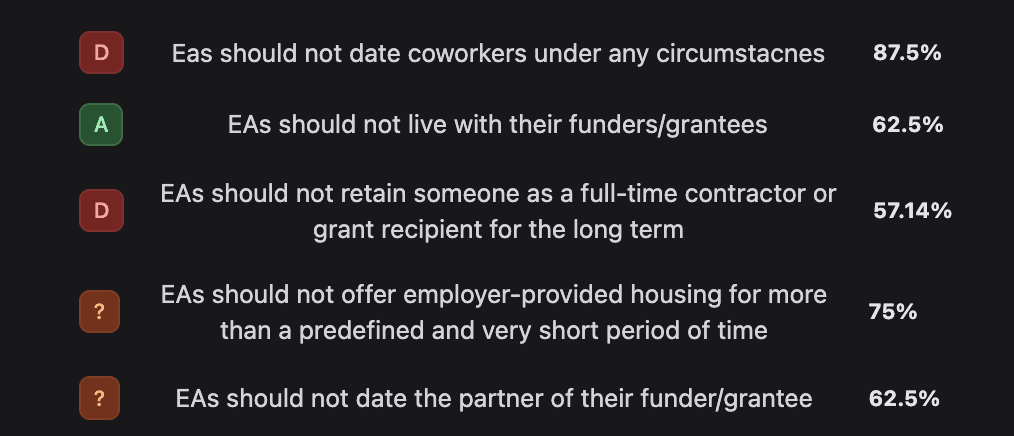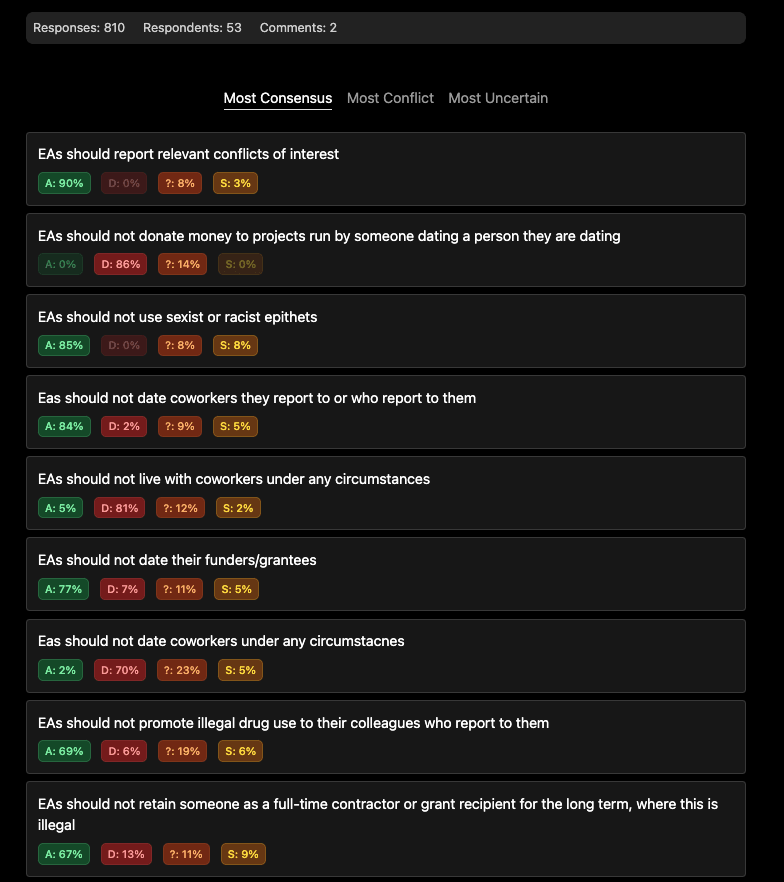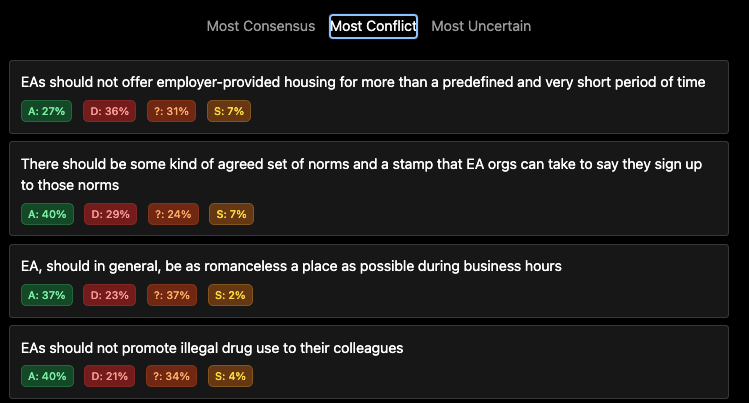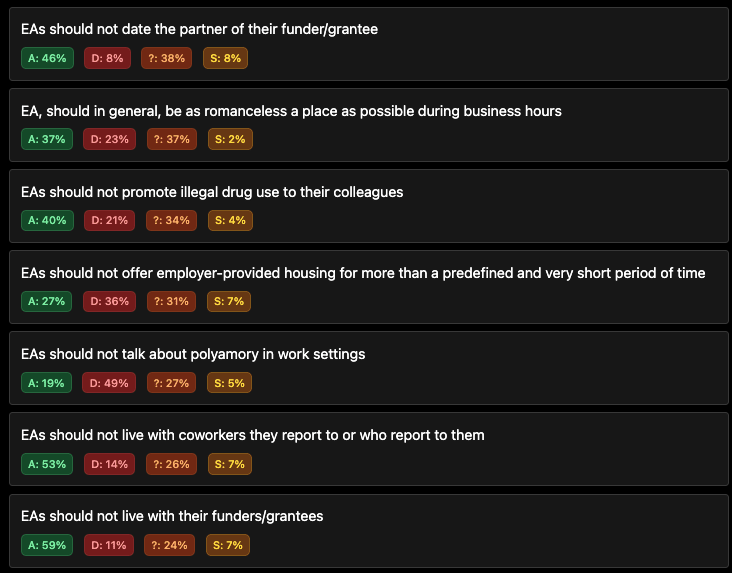There has already been ample discussion of what norms and taboos should exist in the EA community, especially over the past ten months. Below, I'm sharing an incomplete list of actions and dynamics I would strongly encourage EAs and EA organizations to either strictly avoid or treat as warranting a serious—and possibly ongoing—risk analysis.
I believe there is a reasonable risk should EAs:
- Live with coworkers, especially when there is a power differential and especially when there is a direct report relationship
- Date coworkers, especially when there is a power differential and especially when there is a direct report relationship
- Promote[1] drug use among coworkers, including legal drugs, and including alcohol and stimulants
- Live with their funders/grantees, especially when substantial conflict-of-interest mechanisms are not active
- Date their funders/grantees, especially when substantial conflict-of-interest mechanisms are not active
- Date the partner of their funder/grantee, especially when substantial conflict-of-interest mechanisms are not active
- Retain someone as a full-time contractor or grant recipient for the long term, especially when it might not adhere to legal guidelines
- Offer employer-provided housing for more than a predefined and very short period of time, thereby making an employee’s housing dependent on their continued employment and allowing an employer access to an employee’s personal living space
Potentially more controversial, two aspects of the community I believe have substantial downsides that the community has insufficiently discussed or addressed:
- EA™ Group Houses and the branding of private, personal spaces as “EA”
- "Work trials" that require interruption of regular employment to complete, such that those currently employed full-time must leave their existing job to be considered for a prospective job
As said, this list is far from complete and I imagine people may disagree with portions of it. I’m hoping to stake this as a position held by some EAs and I’m hoping this post can serve as a prompt for further discussion and assessment.
- ^
“Promote” is an ambiguous term here. I think this is true to life in that one person’s enthusiastic endorsement of a drug is another person’s peer pressure.





These comments are helpful but I'm still having a difficult time zeroing in on a guiding heuristic here. And I feel mildly frustrated by the counterexamples in the same way I do reading "well, they were always nice to me" comments on a post about a bad actor who deeply harmed someone or hearing someone who routinely drives drunk say "well, I've never caused an accident." I think most (but not all) of my list falls into a category something like "fine or tolerable 9 times out of 10, but really bad, messy, or harmful that other 1 time such that it may make those other 9 times less/not worth it." I'm not sure of the actual probabilities and they definitely vary by bullet point.
In your case in particular, I'll note that a good chunk of your examples either directly involve Julia or involve you (the spouse of Julia, who I assume had Julia as a sounding board). This seems like a rare situation of being particularly well-positioned to deal with complicated situations. Arguably, if anyone can navigate complicated or risky situations well, it will be a community health professional. I'd assume something like 95% of people will be worse at handling a situation that goes south, and maybe >25% of people will be distinctly bad at it. So what norms should be established that factor in this potential? And how do we universalize in a way that makes the risk clear, promotes open risk analysis, and prevents situations that will get really bad should they get bad?